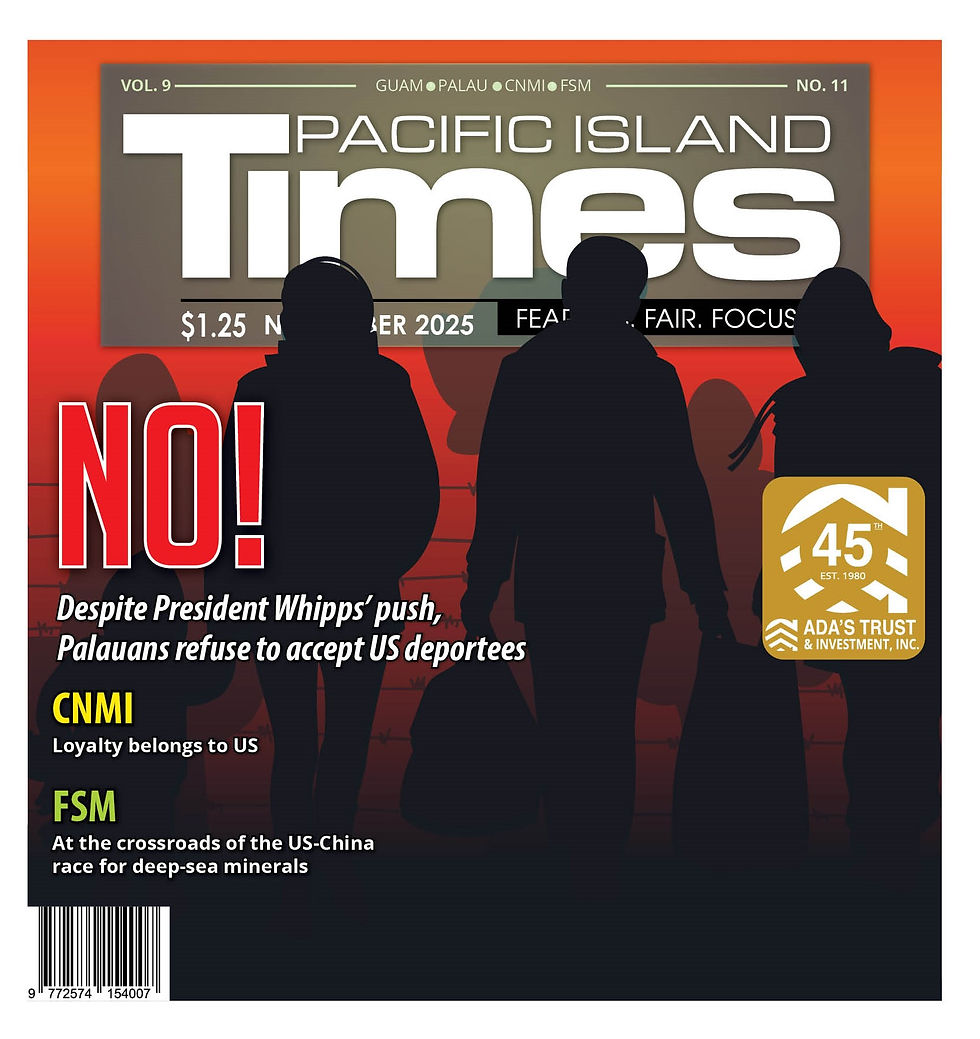Martial law survivors sneer at the death of Philippines' political luminary
- Admin

- Nov 15, 2025
- 3 min read

By Diana G. Mendoza
Manila— The death of Juan Ponce Enrile, dubbed by Filipino journalists and historians as the Philippines' "most enduring politician," set free a huge amount of scathing statements and scornful messages as his family announced his demise on Nov. 13.
“Finally: Enrile dies after a century of corruption and opportunism,” the social media site Superficial Gazette said in the title to its statement, ending it with, “May he face justice for all his crimes in the afterlife, as he looks up at the country he exploited for generations.”
Hashtags such as “Good Riddance,” “Defend Historical Truth,” “No Justice, No Peace,” “No Tears,” and the loudest battle cry of earlier generations of Filipinos who experienced martial rule–“Never Again, Never Forget”—flooded social media platforms.
Until his death, the 101-year-old Enrile, who succumbed to pneumonia, was serving as President Ferdinand Marcos Jr.'s chief legal counsel.
Enrile’s political career began during the administration of the current president’s father, Ferdinand Marcos Sr., who assumed office in 1965.
He served in government agencies until he was appointed justice secretary and then, beginning in 1970, as secretary of the Department of National Defense where he used his position to gain political power and became known for his central role as one of the architects of the implementation of martial law, one of the Philippines’ bloodiest eras in history.
Marcos Sr. declared martial law in 1972, setting off his regime and dictatorship characterized by plunder and human rights abuses that lasted for 20 years.
For decades, Enrile, a magna cum laude graduate of the University of the Philippines and a Master of Laws graduate of Harvard Law School, was seen as the second most powerful politician next to Marcos Sr.
However, in 1986, the world witnessed an extraordinary turn of events when Enrile, along with the late President Fidel Ramos, then a military general, withdrew his support from Marcos Sr. during the 1986 EDSA People Power Revolution, which drove the Marcos family out of the country.
The civilian-supported military mutiny that installed President Corazon Aquino, the widow of martyred opposition politician Senator Benigno Aquino Jr., became the world standard for peaceful revolutions and for ousting dictators.
After the 1986 People Power revolution, Enrile maintained his political power and became a lawmaker and Senate president. But over the years, Filipinos exposed his crimes and complicity with Marcos Sr. and Marcos Jr.
Prior to his death, he got away with graft and plunder when he was acquitted by the anti-graft Sandiganbayan Court in a plunder case and 15 counts of graft for misuse of pork barrel when he was senator.
Enrile, born out of wedlock on Feb. 14, 1924 in a poor village in Cagayan province, is still being remembered as a hero of the people power movement and instrumental in restoring democracy in the Philippines.
But Project Gunita (Remembering), a site of a Filipino academic research organization that archives historical materials and resists historical distortion about the Marcos dictatorship, said, “Enrile waged murderous wars that decimated tens of thousands of Moro people in Mindanao and was behind the deforestation across Samar province and Mindanao's forest covers, with the relentless operations of his logging corporations.”
The group said Enrile colluded with another Marcos crony, Eduardo Cojuangco, in stealing billions of pesos in coconut levy funds from hapless coconut farmers in Quezon province.
“The blood of tens of thousands of Martial Law victims are on Enrile's hands, too,” the group said.
“His legacy of murder and corruption as the architect of martial law will forever haunt his memory. The Filipino people will not let him rest in peace. His death is just the beginning of his judgment.”
Subscribe to
our monthly
digital edition






